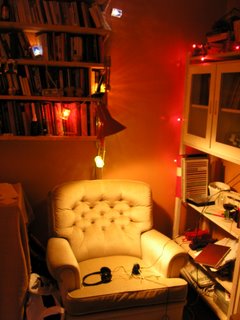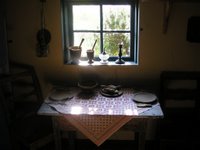20 Inspirational and Motivational Tips for Creative Artists1. Creativity is not Exclusive"There is a vitality, a life force, an energy, a quickening, that is translated through you into action, and because there is only one of you in all time, this expression is unique. And if you block it, it will never exist through any other medium and will be lost"- Martha GrahamCreativity is not exclusive to a talented few. We are all creative and we use our creativity in different ways. The Oxford English Dictionary defines 'creative' as: "involving the use of the imagination or original ideas in order to create something". We all create things, all the time. I'm not talking about works of art, but all that we create around us: our environment, our relationships, and our physical and emotional selves. Every act we engage in is a creative act. When we face a difficult situation, we choose whether to respond positively or react negatively. Equally we can choose whether to think limiting thoughts about our ability to make art, or whether to choose self-empowerment.
2. Think Big"Argue for your limitations, and sure enough, they're yours."- Richard Bach - 'Illusions'In art and in life, limiting thoughts create limited outcomes. If you have an idea for a project, don't allow the largeness of that project to overwhelm you. When I first conceived of writing a novel set in the eighteenth century, I had no formal historical education; indeed my knowledge of the period was slight. I had simply seen a couple of paintings in the National Gallery that inspired me and my imagination took off from there. I took action by enrolling on a course in eighteenth century fiction. I allowed my ideas free reign.
I grew up in a new town, with little sense of history and I truly believe that if I can leap that hurdle, anyone can. It takes application and belief in oneself. There is nothing magical about it
3. Have faith in the Process"I do not plan my fiction any more than I plan woodland walks"- John Fowles - 'The Tree'Works of art are organic things. They do not, for the most part, appear in the artists' imagination fully formed. Look at the work of dramatist Mike Leigh. He works with actors to develop characters over time; he trusts the process of creation. The final script is not a thing that comes fully formed; it involves the actors, the improvisation. Similarly, if you have seen film footage of Picasso at work, think how he paints over his canvases, the first thing he paints soon vanishes beneath more paint; it is a wonderful example of trusting one's creative instincts.
4. Only Begin"I have written a great many stories and I still don't know how to go about it except to write it and take my chances."- John SteinbeckThis advice is not exclusive to writers; it applies to all creative artists. Never wait for inspiration. You could be waiting a lifetime. Have courage to set down a thought on a page, daub a canvas with paint, click the shutter, and speak the lines aloud. Whatever your art form, nothing will come of nothing. When I teach writing, I often read the first line aloud of my favourite Paul Auster novel "Moon Palace" in which the entire plot of the novel that follows is revealed and I ask the question, "Do you believe this was the first paragraph he wrote?" Of course the answer is 'No'. Auster would have discovered the story in the writing and that wonderful first paragraph would come much later in the process.
5. Make a diary date"Action is eloquence" - William ShakespeareIf you want to create, make it a priority in your life. Each week, take a look at your diary and block in time to be devoted to your craft. Think carefully about when and where you work best - first thing in the morning, late evening, in your office, a studio, a café? Once the commitment is there, honour it fully and don't be distracted by other invitations. Your creative time is important. Most of us today lead extremely busy lives and art is an easy thing to be put off until tomorrow. If you aspire to create, don't put it off.
6. Examine the blocks"You can't be afraid to deal with your demons. You've got to go there to be able to write."
-- Lucinda WilliamsIf you continually put it off, maybe you need to understand why this is happening. It's time to connect with your own creative blocks. One of the best ways of doing this is to journal it. Buy a great notebook (I love the black leather 'Moleskine'; choose one that does it for you) and make it a place where you write about every aspect of your creativity, including your fears and what is stopping you. Is there some perceived failure in the past, a broken dream, a cruel word from a teacher or parent that made you lose confidence? Whatever it is, get it on the page. Acknowledge it, understand it. That's the first step to moving beyond it. Ask yourself, 'what is the cost to me of not acknowledging the source of my being blocked?' and 'What will be the consequence of my allowing fear to prevent me from picking up the pen/attending the audition/attempting the new canvas?'
7. Journal your Inspiration and Motivation"If one writes about the day - what's been going on, inside and outside - it soon becomes clear that the choices are endless, and that through the choices one makes one is structuring one's world. Inventing oneself."- Nicole Ward JouveUse the journal for inspiration too. Make it a regular daily habit to take notes about your creative process. Keep notebooks by the bed, in your car, in your bag, in your desk. When a thought occurs, don't lose it, get it down. A journal is a great place for connecting to your personal motivators. Ask yourself 'Why' do I want to create this artwork?' If the reason you come up with is a negative one, look deeper into the positive reasons for desiring to create. Are you creating because you feel you ought to? Can you connect to a deeper, stronger personal motivating factor? Do you discover, in fact, that creating art is so linked to who you are, that if you don't do it, you feel less vibrant and alive?
8. Use Visual and Aural stimulation"An artist is not paid for his labour but for his vision."- James MacNeill WhistlerIf you feel your art is becoming stale, look outside yourself for inspiration. Rather than mining your own experience, expose yourself to new stimuli. Take time out and flick through art books or to listen to music. Make a pin-board of images that might influence your creation and mount it above your desk. If you don't 'fill the well', it will soon be empty. Part of being an artist is about being alive to the world about you. Go out and actively seek inspiration. This is what Julia Cameron calls the 'Artist's Date' taking time out each week, alone, whether at a gallery, a concert, or simply a local park. If you develop your creative sensibility, you are taking the first step towards being creative.
9. Don't make Distraction an Excuse"After spring vacation the children went back to school, but the dog got worms. It was a little complicated at the vet's and I lost a day. By then it was Thursday; Friday is the only day I can buy the groceries, pick up new cedar chips for the gerbils, scrub the bathrooms. I waited till Monday. Still, that left me four good weeks in April to block out the novel."- Anne Tyler- from her essay 'Still just Writing'The morning after Anne Tyler won the Pulitzer Prize in 1989, she politely dismissed an inquisitive reporter with the explanation that she was too busy writing to talk; they had interrupted her in the middle of a sentence.
10. Create all the time (even when you aren't creating)'Work cures everything'- Henri MatisseIt is not only in the act of creating a work of art that the work is done. Most artists get their best ideas when they're not writing/painting/acting. When I was stuck with a particular narrative voice when writing my novel 'The Temple of Hymen', I simply got out of the house, went for a long walk around the campus of UEA where I was studying at the time. As I returned home, having barely contemplated the novel, having allowed my mind to wander, the opening lines of my novel came into my head. "I must begin with a warning". It was a new narrative voice. My subconscious had done the work.
11. Be informed; have compassion"If a man is to shed the light of the sun upon other men, he must first of all have it within himself."- Romain RollandIn order to be fully creative, it is essential to be outward looking: to be capable of empathy, to have studied one's art, to continually deepen our understanding. I remember being shocked once, when teaching a creative writing class when a student asked why I was asking the class to discuss what they liked to read; he simply could not see the relevance. A devotion to one's art, a hunger for understanding, is, I feel, essential for every creative artist.
12. Do it for Love, not Fame"A writer who becomes a Star, I think, loses a little or a lot of their equilibrium... They're too concerned with divining what their massive public desires of them...They aren't writing for themselves any more."- Paul MagrsPesonally I don't think there's anything wrong with wanting to be famous. It's a nice fantasy to imagine one's art reaching a broad audience; having that kind of influence. But to create only with fame in mind is setting ourselves up for disappointment and frustration and it is most possible that in the course of such a journey one might fall out of love with the art-form. Caught up in the desire for success and the validation of the world, we lose our passion. And if the passion goes from the art, truly, what is left? Choose to create for the joy of it, for the pleasure of immersing yourself in the process. Then you are freer to create also, for then, what have you to lose?
13. Cultivate self-love"We ask ourselves, Who am I to be brilliant, gorgeous, talented, fabulous? Actually, who are you not to be?" - Marianne Williamson - from 'A Return to Love'Whatever it takes for you to allow yourself to cultivate self-love, do it. The idea that art has to be born from suffering is a myth. And the idea of the tortured genius is only that, an idea. If you nurture yourself - allow yourself to be all that you are capable of being - you will have more energy for clear thought and creative brilliance.
14. Move beyond your own Experience"For God's sake write about what you don't know! For how else will you bring your imagination into play?" - Graham SwiftThe idea, for writers, that you must 'write what you know' runs deep. Let's bust that myth too. Allow yourself to dream and refuse to let your dreams be limited by the circle of your own experience.
15. Develop your personal Vision"Artists lead unglamorous daily lives of discipline and routine, but their work is full of passion. Each has a vision and feels responsibility to that vision." - Merryl BrockwayA vision is not, I feel, a 'given' for artists. I often feel that as artists we sometimes falter when our vision is unclear. Yet if we can find the discipline and the routine to our art, the vision, I believe, is something that grows. It may not be an complete vision of our life's work, but a vision of the individual creation which grows organically in the process of creating. When you devote yourself to the art, when you don't fear it, the vision comes without effort.
16. Make Mistakes"Creativity is allowing yourself to make mistakes. Art is knowing which ones to keep.
-- Scott AdamDon't worry yet about the Art bit. Think about the Mistakes. Use the 'free-writing' approach, whatever your preferred art form. Pick up a pen, a paintbrush, a camera - and set a timer. The only rules are you must keep the pen moving, the brush painting, the shutter clicking - until the timer stops. In order to create something good you first have to create something bad. There's no artist out there who hasn't first created bad art. You don't have to show it to a soul.
17. Go for the Detail"In photography, the smallest thing can be a great subject. The little, human detail can become a Leitmotiv. "- Henri Cartier BressonAllow yourself to get close to your subject. Take notes where possible or make sketches. Use all the five senses, if you are writing. If you are painting, or sculpting or taking photographs, look for the detail that reveals the whole. Be alert and open to metaphor, what is suggested by what you see. Think about the concept of the 'still life'. Pick up an apple and discover it afresh. What do you see in an apple that nobody else has seen before? Free-associate around a simple object. Your imagination holds the key and transforms every object into something unique.
18. "Try to be one on whom nothing is lost"
- Henry James
James' advice, I feel, stands alone
19. Cultivate Daily Habits"Good habits are worth being fanatical about"- John IrvingFind daily habits that help you cultivate yourself and your art. Think about the components of your ideal day and work to make that day a regular reality. As an artist, doubtless, you're likely to want to include time to reflect, time to create, as well as time to give yourself excellent self-care, what we sometimes call 'extreme self care'. For many writers and artists, allowing ourselves to be creative is a part of that self-care. Think about what routine will work for you and make a daily or weekly ritual about it. And if you miss it one day, don't beat yourself up. Just get back to your desk/easel the following day/week. A body of work is built through repeated activity.
20. Get support"This year, you are Writers"- Sir Malcolm Bradbury to the new MA Creative Writing Group 1992When I began studying Creative Writing under Malcolm Bradbury, I thought of myself as an amateur. Malcolm's words transformed my thinking. If he was taking me seriously as a writer, I would take myself seriously too. It's just a single example of support but a very potent one for me. I have continued to be supported over my years as a writer, by fellow writers and students. These days I continue to be a member of a writing group that gives me invaluable feedback on my work. And I have a Coach who supports me on an individual basis, encouraging me to write when life's many distractions get in the way. Whether you choose a writing group, a course or a
Coach, support will make a huge difference to your productivity and self-belief as an artist.

























